How Long Can My Fish Tank Go Without A Filter
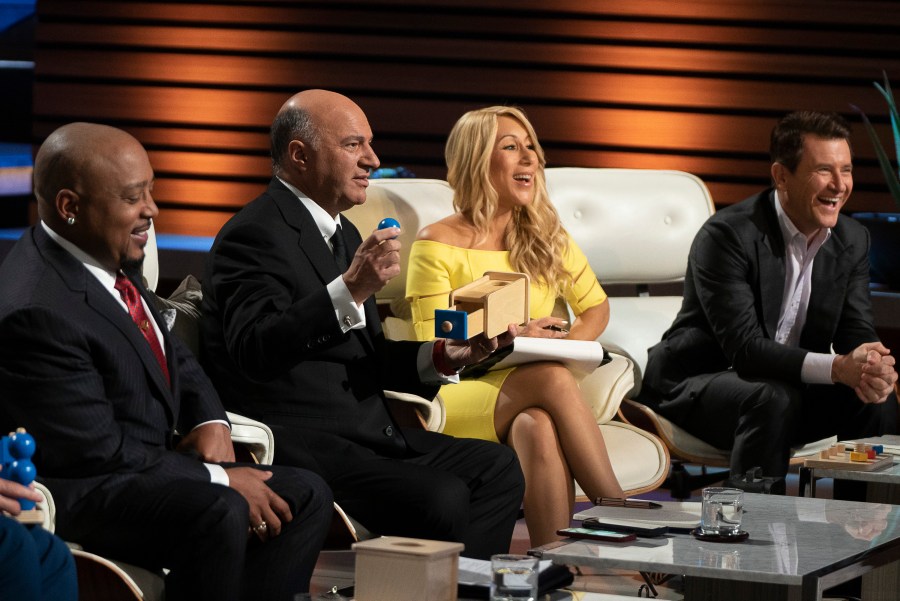
Shark Tank, ABC'southward wildly popular, Emmy-winning reality show works off a unproblematic concept; an enterprising inventor or small-business concern owner pitches their adjacent million-dollar thought to a group of would-be investors to meet if anyone bites. The show has launched dozens of successful products and continues to attract viewers with its mix of high-stakes negotiations and heartwarming personal stories. Hither's a guide to the all-time Shark Tank-related products y'all can buy correct now.
Scrub Daddy
They say necessity is the mother of invention, and when Aaron Krause damaged a car he was detailing, he knew at that place had to exist a better manner. The enterprising Krause developed his own sponges along with a line of polishing and buffing pads.
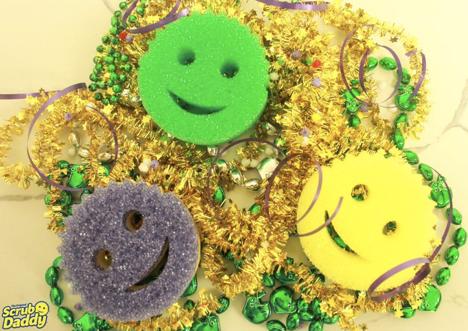
He sold his pad design to agglutinative giant 3M in 2008, leaving his sponges to sit on warehouse shelves. In 2012, he brought the idea to Shark Tank, where the smiling sponges sparked a behest war; QVC-maven Lori Greiner scored a xx% claim for her $200,000 investment.
Fabricated of a high-tech polymer that turns hard in cold water and soft in hot, Scrub Daddy sponges are now sold in stores throughout the country and the company is valued at more than $170 million.
Tipsy Elves
Unless you've been hiding nether a stone for the concluding few years, you know that ugly Christmas sweaters are a matter. Evan Mendolsohn and old college roommate Nick Morton launched the naught but prissy Tipsy Elves company in 2011 to make full what they saw as a gap in the cheeky Christmas sweater department.
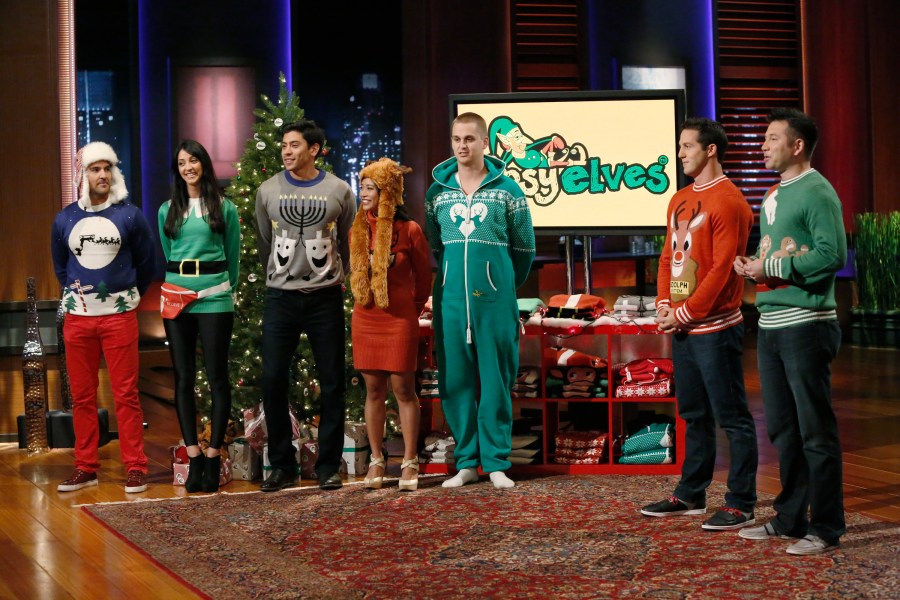
After a few years of steady sales, the duo went on the entrepreneurial reality show and received several offers from the sharks. Ultimately though, they settled with Robert Herjavec at 10% equity for $100,000. The longtime shark said it's the best deal he's made on the evidence; the visitor has now sold over $100 one thousand thousand worth of their signature snarky sweaters.
Squatty Potty
Judy Edwards struggled with constipation all her life. Then, on her doctor'south recommendation, she started using a footstool to help her on the toilet. Her son Bobby thought they might be onto something, so they designed their own plastic version of the stool and started gifting them to friends, family and health bloggers.
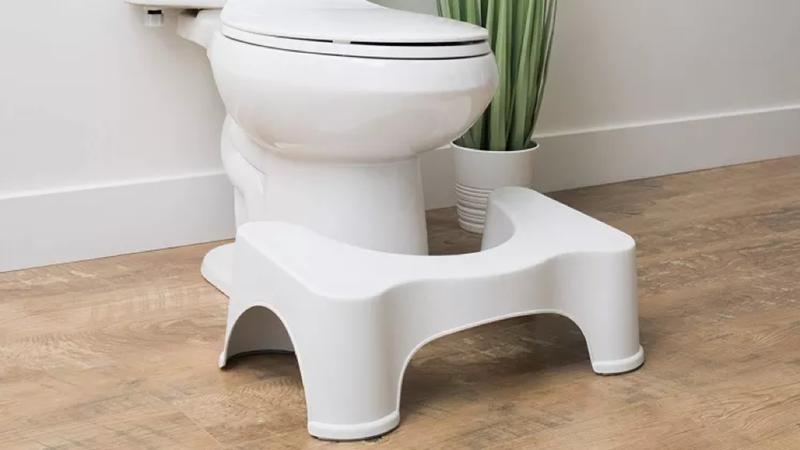
They fabricated it onto Shark Tank in 2016 and quickly secured a $500,000 investment from Lori Greiner, landing the Squatty Potty in Bed Bath & Beyond stores around the state. Buoyed by a clever marketing campaign that includes a magical pooping unicorn, the pocket-sized get-go-up is at present worth over $25 million.
Wicked Skillful Cupcakes
When Massachusetts-based Danielle Desroches and her mother Tracey started posting their delicious-looking cupcakes on Facebook, they received a lot of mail service commitment requests from relatives and friends. But, how do you transport a cupcake through the mail? Stick it in a jar. That'due south the breakthrough that spurred the success of Wicked Good Cupcakes.
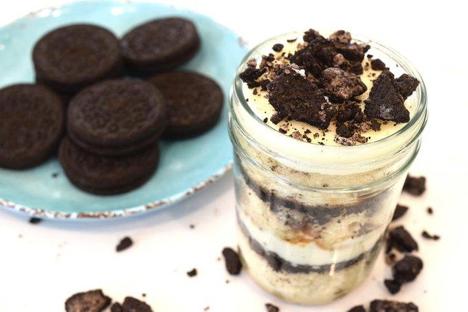
Danielle and Tracey appeared on the Shark Tank in 2012 and struck a deal with investor Kevin O'Leary, who gave them $75,000 in commutation for $ane of every cupcake sold until he made his coin back; plus 45 cents of each i thereafter. O'Leary was back in the blackness less than half-dozen months afterwards and Wicked Practiced Cupcakes has now sold over $xiv meg in cupcakes.
Buggy Beds
Simply the idea of bedbugs is plenty to brand your skin clamber. So, wouldn't you pay for a production that could help you observe them before they ruined your life? That's the thinking behind BuggyBeds, an early detection arrangement created past longtime partners and entrepreneurs Maria Curcio and Veronica Perlongo.
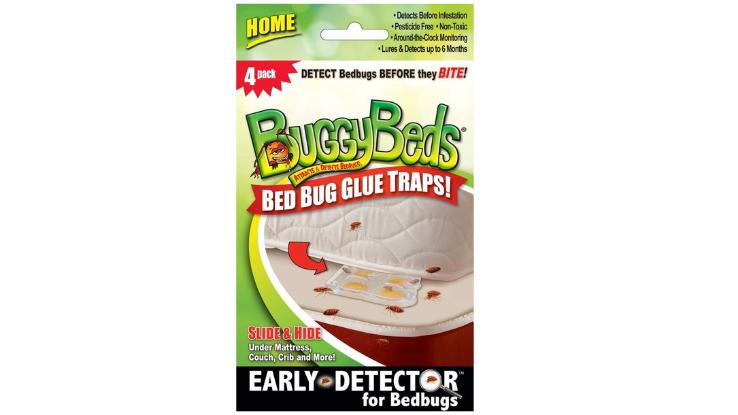
The nontoxic, portable system traps the unwelcome bunkmates before they take a chance to infest the rest of the home. Their ingenious process had all 5 sharks clamoring to invest in the business; Kevin O'Leary, Robert Herjavec, Marking Cuban, Daymond John and Barbara Corcoran pooled $250,000 for a 25% stake, which is now worth millions.
Ring Video Doorbell
A doorbell is much more than just a doorbell when it lets yous encounter who's knocking without even beingness at home. That was the premise behind Doorbot, the original iteration of Band. CEO Jamie Siminoff brought the gadget before the Shark Tank panel in 2013, seeking a $700,000 investment for his app-enabled invention.
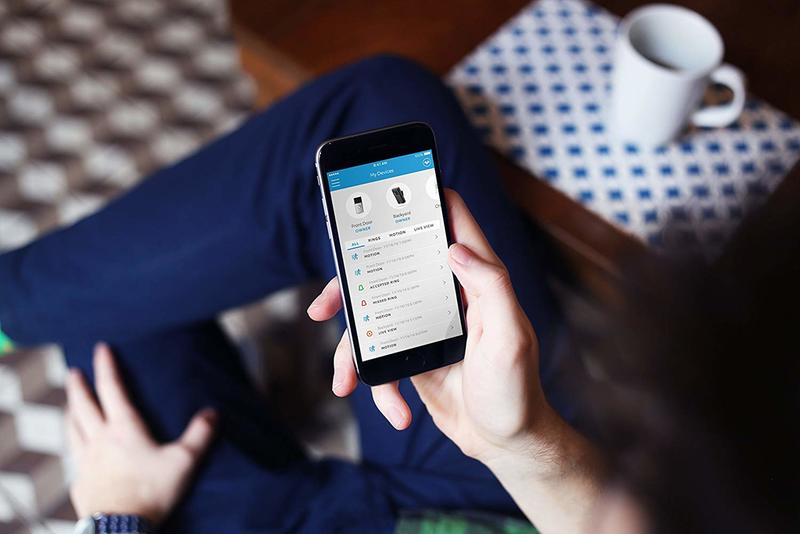
The sharks missed this opportunity, though; Cuban was unsure about the company'southward valuation and Siminoff rejected the simply deal he was offered. Instead, he revamped the idea and rebranded the smart doorbell under the iconic Ring proper noun, which he sold to Amazon in 2018 for a deal worth a reported $one billion.
Bombas Socks
Sometimes a production is so game-irresolute and so obviously vivid that information technology sells itself. And then in that location are socks, which are such a mundane product that Bombas founders David Heath and Randy Goldberg knew they'd face tough questions when they appeared on Shark Tank in 2014.
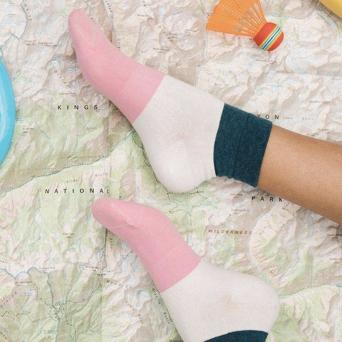
Perhaps the sharks were inspired by the noble mission to donate a pair of socks to the homeless for every pair they sold for profit, or possibly it was the design, which incorporated a unique honeycomb structure and high-tech athletic fabrics. Either way, Daymond John invested $200,000 for a 17.5% share in Bombas, a visitor that has now brought in over $50 million.
Cousins Maine Lobster
No, the cousins part of the Cousins Maine Lobster proper noun isn't a marketing gimmick. Maine natives and cousins Sabin Lomac and Jim Tselikis moved to Los Angeles and decided to open up a food truck to introduce West Coasters to the elementary joy of lobster rolls.
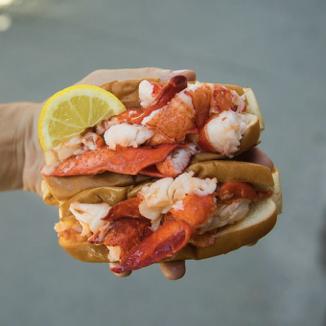
They emerged on the scene to rave reviews. Then in 2012, the duo pitched their culinary concept to the Shark Tank panel and landed a $55,000 bargain from Barbara Corcoran in exchange for a xv% share in their business organization. Ane truck quickly grew into several, and as the TV appearances piled up, so did the money. Cousins Maine Lobster at present operates almost two dozen trucks in Southern California and sells nationally online.
FiberFix
Duct tape is handy for quick-set up repair jobs around the house, but isn't much of a long-term solution. Spencer Quinn and Eric Child saw this problem and came upwards with FiberFix.
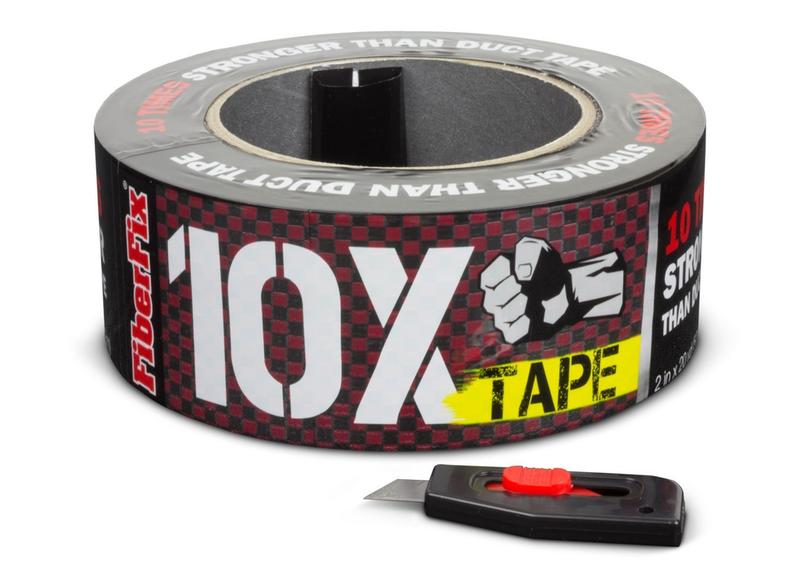
When the pair demonstrated their product, a water-activated resin embedded into a strip of industrial-grade cobweb, they ignited a behest state of war between Shark Tank investors. Ultimately they went with Lori Greiner who received a 12% pale for her $120,000 venture. At present FiberFix is sold on Amazon, and in Home Depot and Walgreens stores across the state.
Runted Bagels
If you lot've e'er craved a bagel, but don't really feel like eating the whole affair, you lot're the perfect customer for Bantam Bagels. Elyse and Nick Oleksak turned their tiny New York storefront into a national company thanks to these snackable stuffed bagel bites and one eagle-eyed Shark Tank contributor.
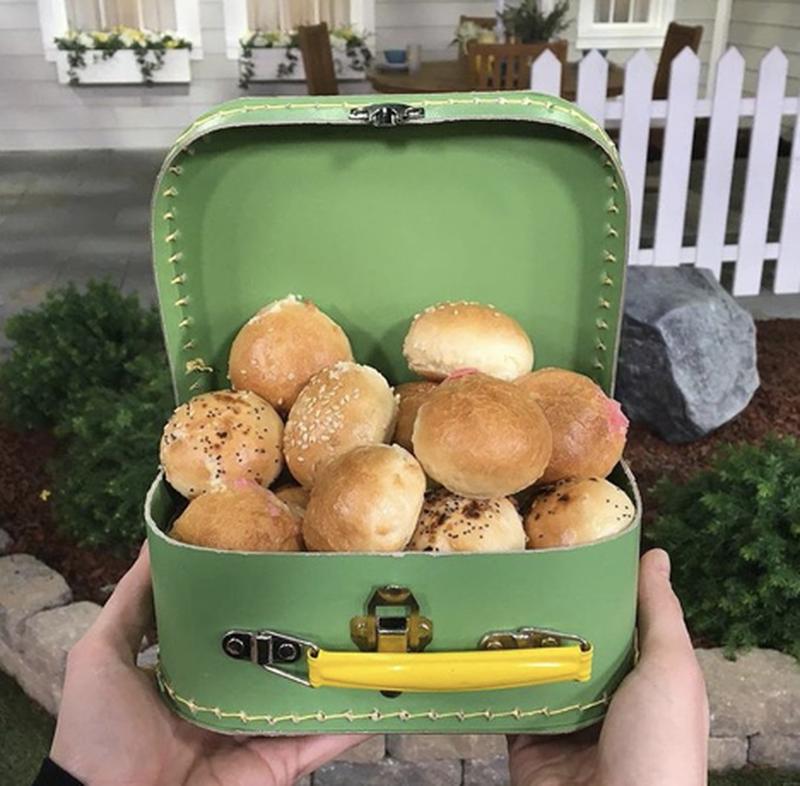
When the couple appeared on the evidence in 2015, they struck a bargain with Lori Greiner who invested $275,000 in render for a 25% pale. Now yous can find these tiny treats in Starbucks stores around the land and they recently sold the business for $34 1000000.
Grace & Lace
Melissa Hinnant started Grace & Lace while on bed balance during a difficult pregnancy. Later Hinnant lost the baby, she coped by knitting socks, which turned into a modest-but-thriving online concern. Melissa and her hubby Rick wanted more just money from Shark Tank — they needed a partner to aid grow the business.
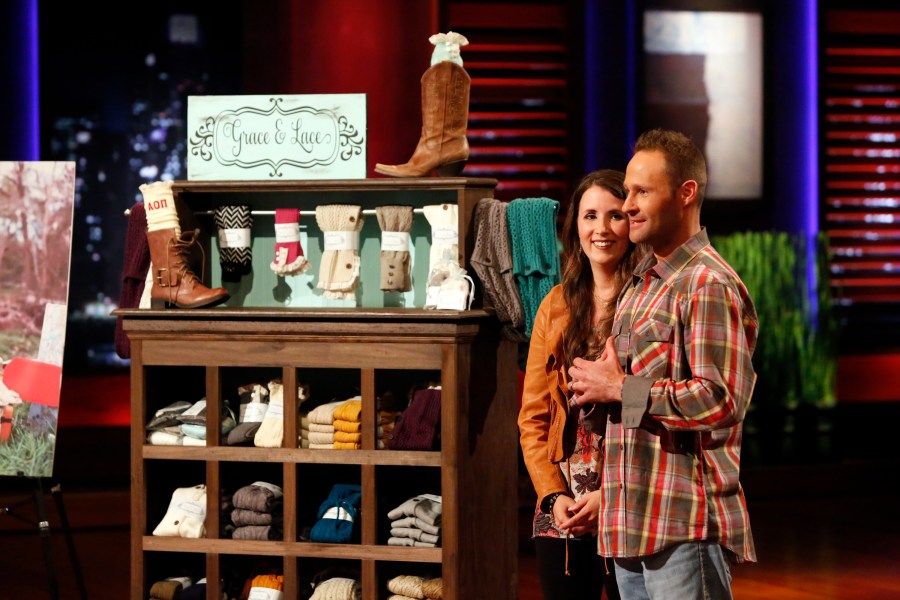
The couple fabricated a deal with Barbara Corcoran for $175,000 in exchange for a 10% claim. The company quickly expanded to hats, scarves and more, and is estimated to accept made nigh $14 million in revenue. The Hinnants take since opened several orphanages in India and partnered with local aid organizations.
Tower Paddle Boards
Stephan Aarstol isn't a big sports guy, but he knows a tendency when he sees i. The internet marketing specialist started Tower Paddle when he saw the huge number of online searches for paddle boards. That kind of forwards-thinking business apprehending landed him on Shark Tank in 2012.
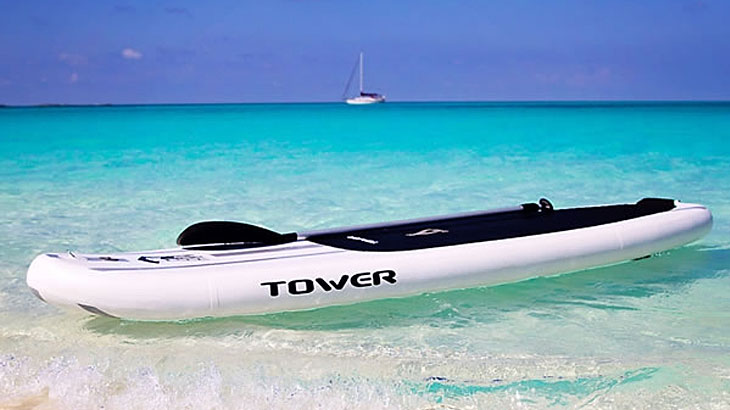
Marker Cuban understood that Aarstol's success lay in expanding Tower Paddle in order to pursue other opportunities. Cuban made an offering of $150,000 in exchange for thirty% equity and the right of first refusal on Aarstol's future ideas. Now Tower Paddle enjoys triple digit growth and is one of the fastest-growing private companies in California.
Copa Di Vino
While traveling on a bullet train in France, James Martin started thinking about a amend, less wasteful way to enjoy wine on the go. In 2011, he turned his attention away from his ii Oregon wineries to focus on Copa Di Vino (Italian for "loving cup of wine").
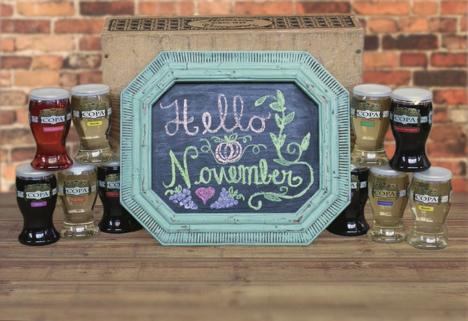
Martin entered the Shark Tank not only once, but twice. Both times he clashed with investors and left empty-handed. Nevertheless, the publicity generated from his fourth dimension on the show was plenty to make Copa Di Vino a success, with virtually $67 million in total revenue.
The Comfortable
While in the midst of a divorce, Michael Speciale moved in with his brother Brian and noticed his nephew'south habit of wearing oversized sweatshirts. This inspired him to create The Original Comfy, a hybrid coating/sweatshirt that he knew could be a striking if but they had the money to invest. In 2017, they had their kickoff paradigm ready and were on their way to Shark Tank.
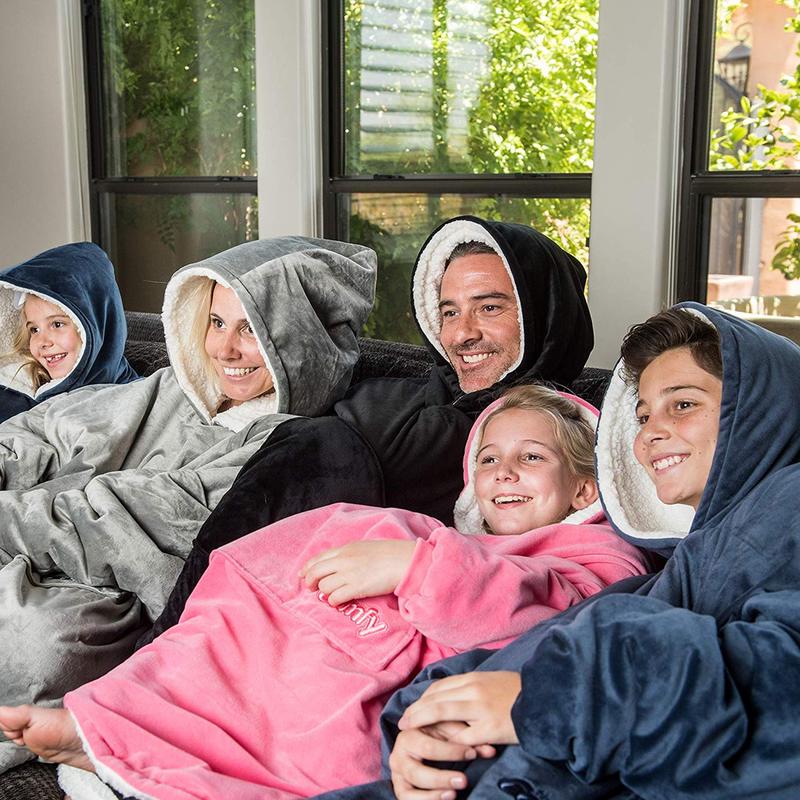
The sharks had their doubts, pointing out that The Comfy was similar to the Snuggie. Just the brothers prevailed by arguing that the hood doubled every bit a pillow and the oversized pocket were perfect for phones and tablets. Eventually, they took Barbara Corcoran's offer of 30% equity for $50,000; now The Comfy is sold on QVC and in Bed Bath & Beyond stores nationwide.
Sun-Staches
Novelty sunglasses take been effectually for decades, but David Levich, Eric Liberman and Dan Gershon knew they had something unconventional in listen for Sun-Staches. They were already beingness sold in places like Party City and Toys "R" The states, but they wanted to go bigger and landed an advent on Shark Tank.
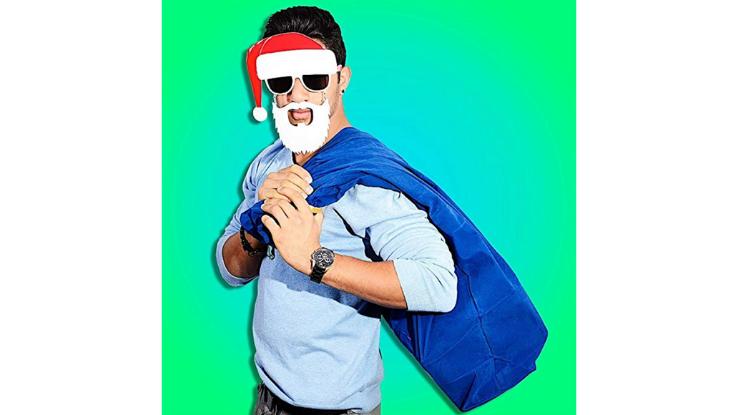
Armed with a programme and samples of popular styles like the football helmet and the black cat, the trio cut a profitable bargain with Daymond John for $300,000, giving him a 20% stake in the enterprise. Almost immediately their sales skyrocketed into the tens of millions and they landed lucrative licensing deals with major companies like Marvel, Nintendo and Disney.
Groovebook
It's easier than always to take loftier-quality photos, but those cherished memories often terminate upwards hogging valuable space on our smartphones. Brian Whiteman and his wife Julia used their commercial press shop as the springboard for Groovebook, a service that allowed customers to upload their photos and receive a custom-jump photo volume.
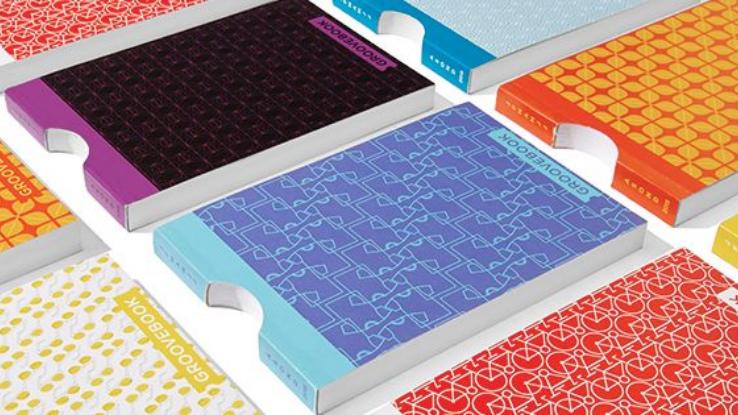
When the couple appeared on Shark Tank in 2014, several sharks appeared interested in their idea. Ultimately, they settled with Kevin O'Leary and Mark Cuban, giving them 80% licensing rights for a $150,000 advance. Inside months the company's subscriber base tripled, and in 2014 Groovebook sold to Shutterfly for $14.v one thousand thousand.
Bubba-Q'due south Boneless Ribs
There are 2 kinds of people in this world; those who dearest baby back ribs and those who love them, simply think they're as well messy. To delight his married woman Sabrina, one-time NFL star Al "Bubba" Baker patented a technique to debone ribs that left the meat intact. Later on a few years of so-so sales, Baker went on Shark Tank to turn things around.
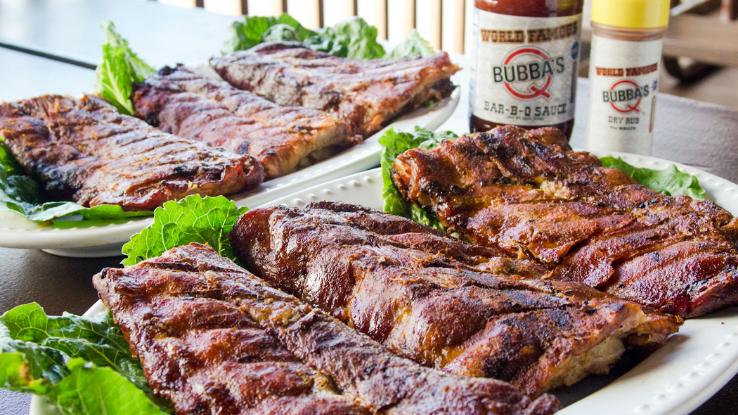
Shark Group founder Daymond John couldn't ignore Bubba-Q's potential. He threw downwardly $300,000 for 30% disinterestedness and a licensing deal on the technique. Bubba-Q's sales skyrocketed. The company is now worth $16 million, and Bubba-Q's Boneless Ribs can be bought in supermarkets and stadiums around the U.Southward.
Sand Deject
Longtime friends and San Diego residents Bruno Aschidamini, Steven Ford and Brandon Leibel invested years (and a lot of money) trying to sell their beach blankets with a built-in pillow. When a forgotten manufacturer sample of a cotton fiber blanket with a mandala pattern became an unexpected striking at a trade expo, they knew they had to shift focus.
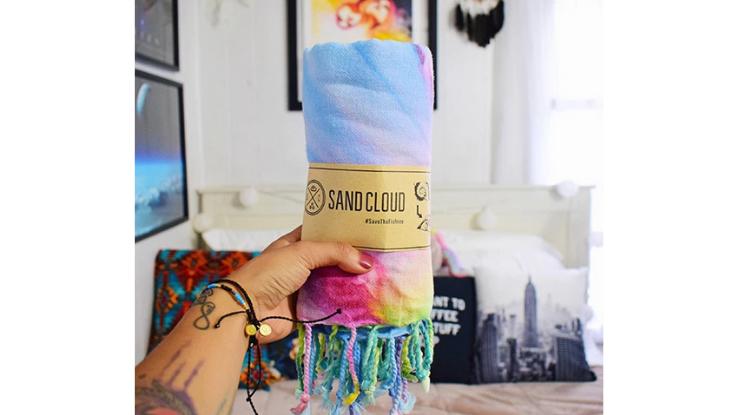
The trio appeared on the show in 2017 and speedily airtight a deal with Kevin O'Leary. O'Leary recognized the appeal of the high-quality Turkish-cotton blankets and surmised that they could double as beach sarongs, wraps and tapestries; the heaven was the limit. Now Sand Deject donates x% of its profits to support marine research and conservation efforts, and is poised to hit $8 million in annual sales.
Drop Stop
How many times have you dropped something into the no homo'due south land between your seat and center console and struggled to become information technology out? When Marc Newburger nearly crashed his auto trying to remember his telephone, he came up with the idea for the Drib Finish and became a millionaire.
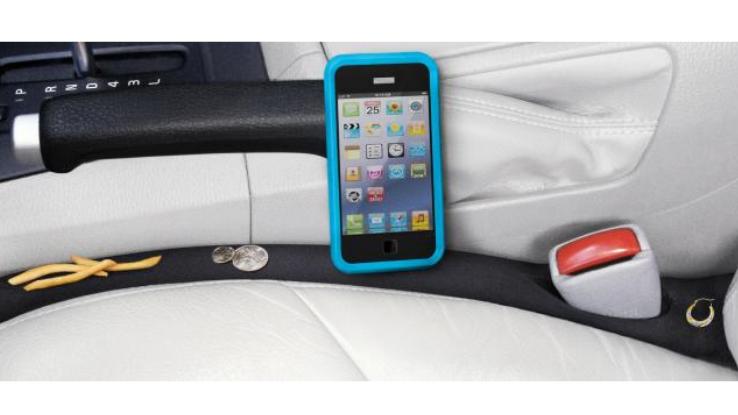
Newburger and partner Jeffrey Simon took their product to Shark Tank in 2013, and investor Lori Greiner was so impressed she became a 20% possessor and helped get them to the next level. They gauge they've now sold over 2.4 million Driblet Stops.
Monkey Mat
A six-hour aerodrome layover with her ii young children got Christia Barany thinking about how hard information technology is to entertain kids in public. Her solution? Monkey Mat, a super lightweight, portable mat that transforms any apartment surface into a play area. Christie enlisted her friend Courtney Turich to help with the business, which had some initial success on Amazon.
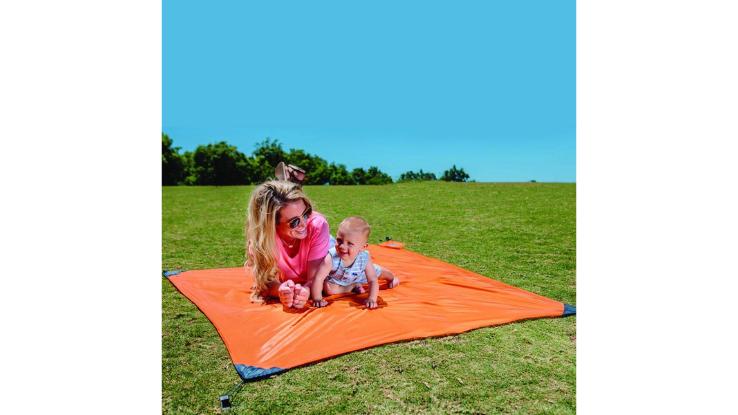
The pair appeared before the sharks in 2014 with the goal of securing money to grow the concern and finding a partner who could hook them upwardly with key retail placements. Lori Greiner and Mark Cuban went in together on an arrangement that ushered in millions of dollars in sales of the 6-foot-past-6-human foot, h2o-and-dirt-repellent mat from stores similar Amazon and Babies "R" Us.
Milk Snob Baby Covers
Sometimes the all-time ideas are the simplest ones, as Melanie Disbrow discovered when she began selling her multi-functional car seat covers in 2015. The breathable, stretchy overlays could be used as a nursing cover, a shield for infant swings, and more.
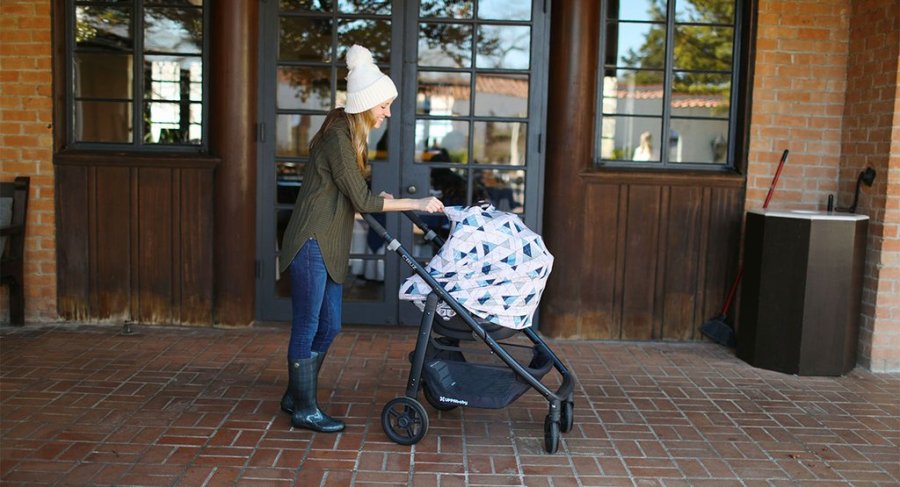
The product was a hit and she racked upwards over $1 one thousand thousand in sales fifty-fifty before she went on Shark Tank in 2016. After her appearance on the bear witness, Disbrow teamed up with Lori Greiner, giving up ten% of her business for $150,000. Since so, Milk Snob has landed licensing deals with Disney, Sesame Street and other big-proper noun companies.
Ezpz Silicone Mat
Anyone with small children knows how quickly mealtime can devolve into a messy free-for-all, and Colorado mom Lindsay Laurain longed for a better way. Then she came up with the Ezpz Happy Mat, a silicone placemat-plate combo that sticks to nigh any surface with no adhesive.
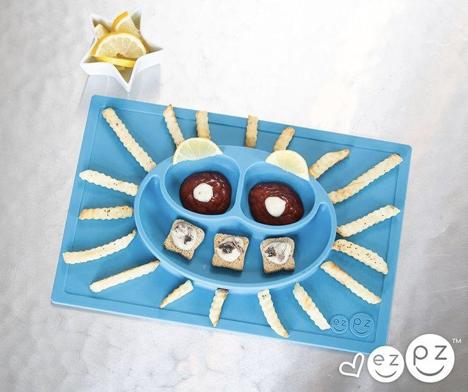
Laurain grabbed the attention of potential investors during her appearance on Shark Tank when she valued her company at a sky-loftier $20 million; she so asked for a 1-meg-dollar, v%-equity deal. The sharks expressed skepticism and she left without a contract, but her concern has grown considerably; the silicone mat has garnered rave reviews on Amazon and is sold at Bed Bath & Beyond.
Nerdwax
Whether you wear spectacles regularly or are just ill of your sunglasses slipping down your nose, y'all know how abrasive it is to constantly push them back into identify. Dom Hejny of Nashville had had enough, so he created Nerdwax, a beeswax-based ointment designed to proceed spectacles in place all mean solar day long.
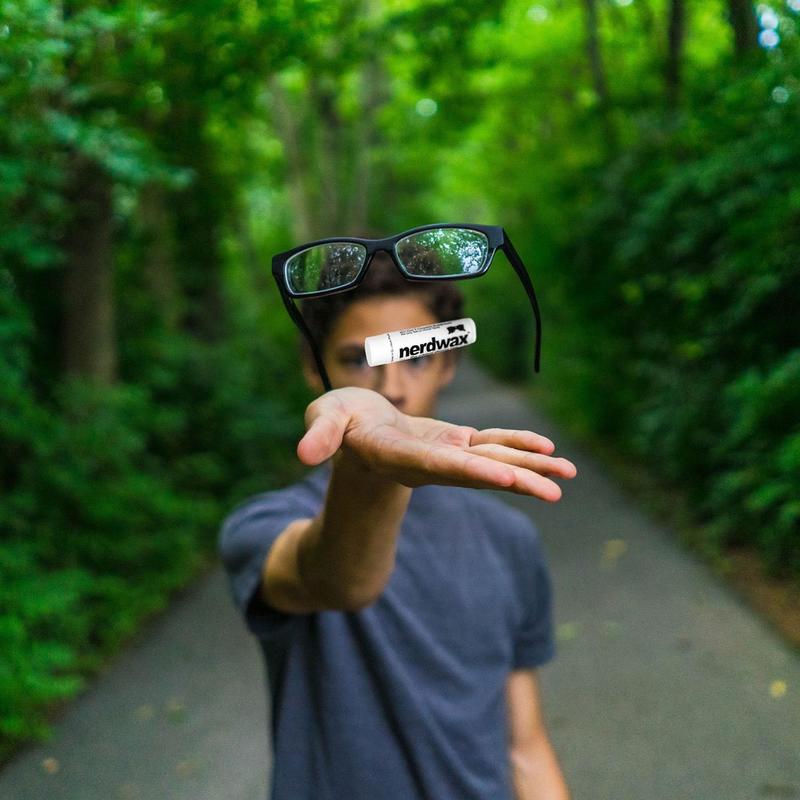
Don and his wife Lydia appeared on an episode in 2016 and initially hoped to secure $80,000 in return for 20% equity in Nerdwax. Troy Carter offered what amounted to a loan and a royalty fee, but the Hejnys declined. In the stop, the publicity helped boost Nerdwax's contour and generate sales through Amazon and their website.
Bakery's Edge
Ask any serious brownie fan what the best part of this deliciously chocolatey dessert is and chances are they'll all say "the corner." Matthew Griffin idea the aforementioned matter, so in 1998 he patented a credibility pan that gave every slice that crunchy corner seize with teeth.
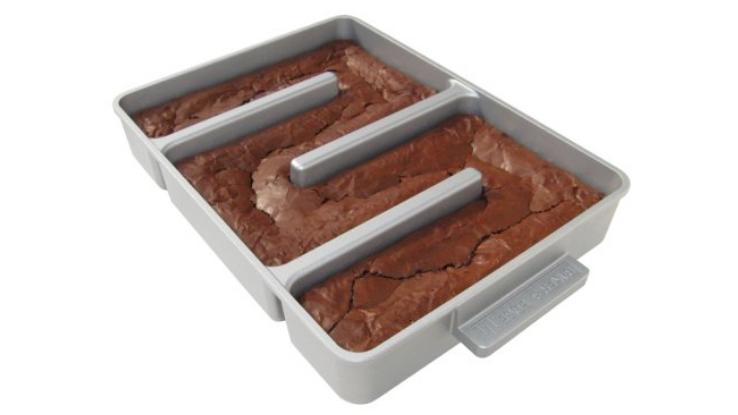
Matt and his wife Emily went on Shark Tank in 2014 hoping to country a $400,000 investment in return for a 20% stake. Later on a tense dorsum and forth with the sharks on the profitability of their business, the Griffins walked out empty-handed, only continue to sell their innovative baking pans on their website.
Lumio
Max Gunawan, a old builder interested in modular blueprint, came upwardly with the idea for Lumio, a stylish low-cal fixture that could go merely virtually anywhere. Gunawan raised over $500,000 on Kickstarter before heading to Shark Tank to land a deal that would brand Lumio a household proper name.
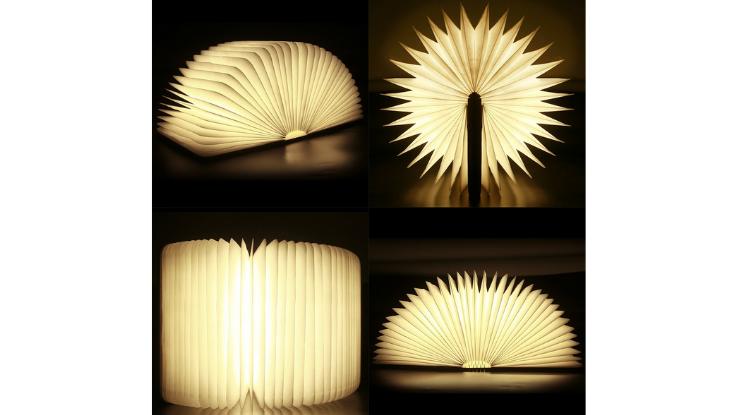
When he appeared on the show in 2014, Gunawan set off a bidding war among the five sharks who all loved the simple yet high-concept design. Gunawan somewhen fabricated a bargain with Robert Herjavec for $350,000 at x% equity.
Pandaloon
Cute animals in even cuter costumes — that'due south the simple only brilliant concept behind Pandaloon, which was started in 2011 by Eugenia Chen. When a video of her Pomeranian wearing one of her creations went viral on YouTube, Chen decided an appearance on Shark Tank might be her ticket to existent success.
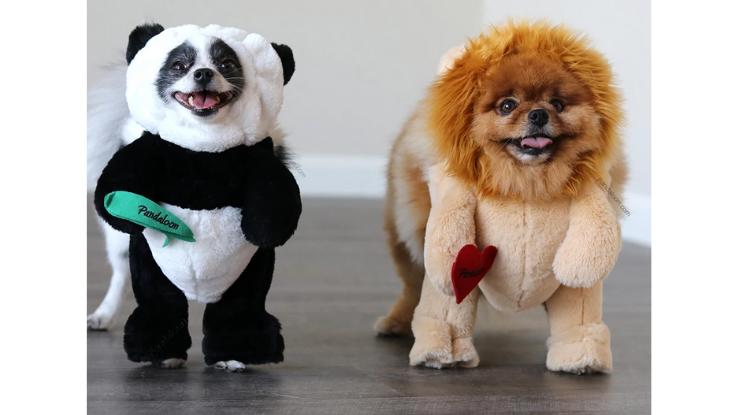
In 2018 she got her chance to pitch to the sharks. The struggling computational scientist secured a $60,000 deal with Daymond John in exchange for a 35% stake and a ten% donation to charity. Now Chen sells direct though her own website and has seen sales jump dramatically.
Kodiak Cakes
Kodiak Cakes started out every bit a pocket-sized family business in 1982, when Joel Clark'south mother Penny began packaging and selling her pancake mix in Park City, Utah. Modest (but steady) sales over the years kept the business afloat, simply soon Joel was taking out loans and working side gigs to proceed things going.
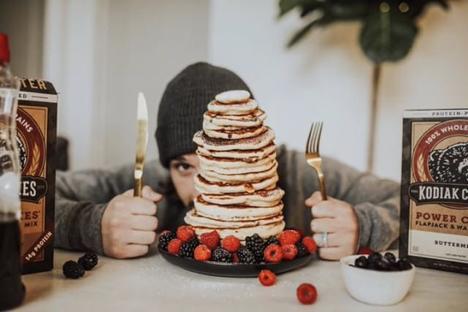
In 2014, he and partner Cameron Smith appeared on an episode of Shark Tank to make a deal worth $500,000 in render for 10% of the business. They left empty-handed, but the exposure was plenty to drive sales of the protein-packed waffle and flapjack mix to almost $100 million a year.
Hatch Infant
There's no manual for raising a child, which can lead to many sleepless nights every bit new moms worry about whether their child is developing commonly. Ann Weiss came up with the idea of Hatch Baby, a smart changing pad that could rail a babe's weight gain in betwixt doctor'south visits.
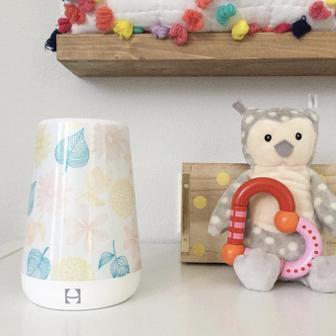
Ann and her husband Dave asked investors for a $250,000 investment in return for a 2.v% equity stake. Though the sharks declined to invest in a product still in the product phase, Ann and Dave sell Hatch Baby all over the world through their website.
PhoneSoap
Cell phones can contain up to xviii times the amount of bacteria found in a public restroom, which is why cousins Wes La Porte and Dan Barnes created a portable UV sanitizer called PhoneSoap that could impale 99.9% of bacteria and charge phones at the same time.
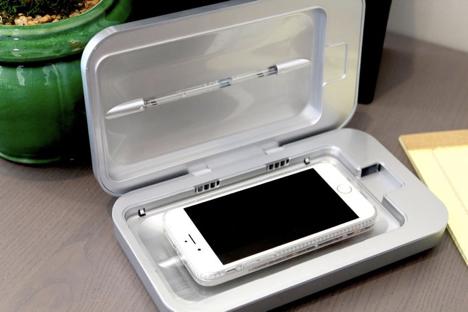
They appeared on Shark Tank in 2015 hoping to build on the half a million in sales they'd already achieved. They ultimately landed with Lori Greiner for $300,000 and 10% disinterestedness; in the first year alone they sold over $v million worth of product and were in talks with major retailers.
Frywall
Brooklyn resident Yari Reiner created Frywall after getting fed upwardly with spills and splatters every time he cooked at dwelling house. The flexible, food-safe cone fits within big and small pans to keep food where it belongs. Later on he lost his job, he went all-in with Frywall and landed on Shark Tank in 2015.
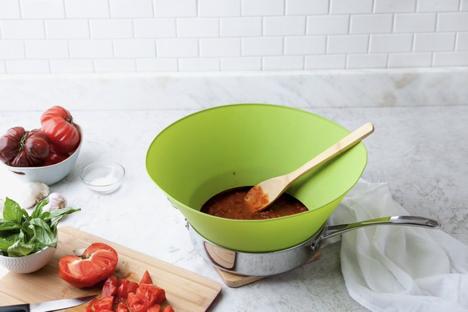
He sought a $100,000 investment in return for ten% equity and struck gold with Lori Greiner — literally. She offered her "golden ticket," which she hands out once a year to her favorite product. Greiner met his offer, extended a line of credit indefinitely, and helped go Frywall into Target stores and other retailers beyond the country.
How Long Can My Fish Tank Go Without A Filter,
Source: https://www.consumersearch.com/technology/best-shark-tank-products?utm_content=params%3Ao%3D740007%26ad%3DdirN%26qo%3DserpIndex
Posted by: nguyencreformen.blogspot.com


0 Response to "How Long Can My Fish Tank Go Without A Filter"
Post a Comment